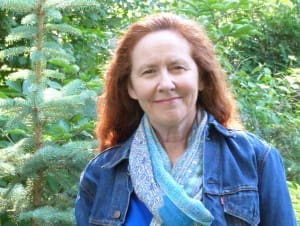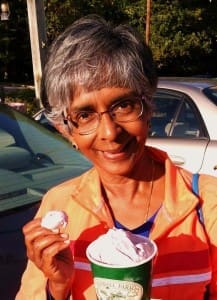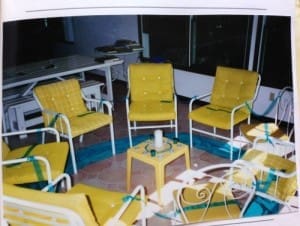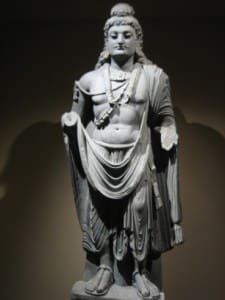A Dialogue on Embodiment of Christ Consciousness
Michael Mark and I began to share written “dialogues” in March, 2013. He wrote me first to thank me for my part in bringing A Course of Love into being, and to join the Registry of readers that was on the ACOL website “that was” before the new publication. Right away we began to do so much more than exchange 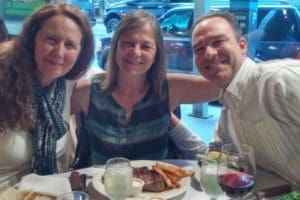 emails…as we exchanged emails! In 2015 he and his wife Debbie came to meet me while I was in New York for the that year’s ACIM Conference. (The photo is from that visit.) They also attended last year’s conference and the first ACOL Gathering in Las Vegas. Now, almost four years since we first “met,” we’re still in dialogue. Michael introduces his essay and my part in this contribution to the Expressions Page below.
emails…as we exchanged emails! In 2015 he and his wife Debbie came to meet me while I was in New York for the that year’s ACIM Conference. (The photo is from that visit.) They also attended last year’s conference and the first ACOL Gathering in Las Vegas. Now, almost four years since we first “met,” we’re still in dialogue. Michael introduces his essay and my part in this contribution to the Expressions Page below.
Introduction
written by Michael Mark
What follows is a short piece that I wrote about Christ Consciousness in response to a request from Mari that I write something for this Expressions Page. I wrote this in a single sitting, and though I did some tinkering with the language and minor editing, I basically wrote it top-to-bottom and sent it off as a draft to see what Mari thought of it. In her response, she questioned some of my language, and what I had really meant when I wrote it, which led to a back-and-forth that was—I think—quite enjoyable and illuminating for us both. After our brief series of exchanges we each had the thought that the article with the dialogue that followed was worth sharing as one whole piece.
So the article that follows remains in its original form, and even though I talk about editing it in the subsequent discussion with Mari, this was never done. The subsequent dialogue we’ve attached more than takes care, I think, of the shortcomings of the original piece.
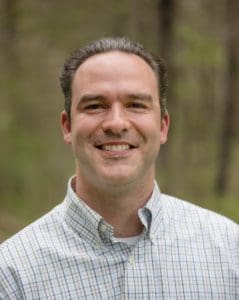 On Embodiment of Christ Consciousness
On Embodiment of Christ Consciousness
by Michael Mark
If you’re reading this you’ve probably had the sensation at least once, at the core of your being, of what is called Christ consciousness. It is joyous. It is complete. It is inseparable from your breath, your awareness, your touch. It isn’t out there somewhere, and yet it is plain to see in everything you behold, as if the whole world is somehow singing with the very same awareness that you are. You feel as though you know each flower and blade of grass in the field by name, though names don’t really matter so much, since the intimacy of this awareness is deeper than any symbol. What is most obvious is the way each and every aspect of Creation is the fullest possible expression of precisely what it is. The stalk of grass is different than the raven, but when you are experiencing Christ consciousness those differences reveal what is ultimately the same, albeit in ways that illuminate, surprise and gladden. This paradox makes sense. It computes. It feels like home.
Then the phone rings and you remember you owe the hospital money and you haven’t made the payment this month. You thought the enthusiasm you felt at the very core of your being two years ago was directing you to open a small business, that now is folding up. Your brother has cancer, and you’re nowhere closer to knowing what to do about it than you ever would have been before. Never mind the children who are suffering in the Siege of Aleppo, in refugee boats and encampments, or who are being bullied in the elementary school three blocks away. Never mind your own child is still caught in the stifling noose of drug abuse, or is investing in their own demise in some other, less direct way. On the face of it, you are back where you started.
I think this back-and-forth is the essence of what Jesus describes as “becoming” in ACOL. We flicker between the certainty and safety we seek, and the suffering we see that keeps us from surrendering completely. The difficulty we encounter at this fork in the road can be summarized in our individual reactions to this statement from very early on in ACOL, “There is not a soul that walks this earth that does not weep at what it sees. Yet the Christ in you does not weep, for the Christ in you sees with eyes of love. The difference is the eyes of love see not the misery or despair.” (C:2.10)
I know I balk sometimes at this one. It has the look and feel of suggesting we need not–perhaps ought not–feel as we do. It seems to suggest the problems of the world are figments of our imagination, a strange precipitate reduced from our misperceptions. Maybe I should just steel myself from being touched by all the pain and suffering. Maybe it’s okay to just look away.
But I don’t think Jesus is suggesting we look away at all. Of course he is not. Nor is he suggesting we put the suffering of the world on our back, and toil beneath its weight. He is not asking for martyrs or guilt-assuaging feats of cathartic service, where we offer but a pittance of hope against a tide of doubt and annihilation. I’ve had to think about this one a lot as I flicker back-and-forth, wondering what response I should be offering to this world, wondering if I’m being enough, giving enough, doing it right, making a difference.
I’ve slowly come to the conclusion that what we fear is always an exaggerated distortion of what is. Fear brings out this tendency in us to extrapolate a paper cut to this entire home movie of an infectious disease, grinding on us day and night, wearing us down to a painful passage into non-existence. As excessive as that example is, I think the point is relevant. It is the ability of Christ consciousness to remain centered upon what is–to retain its balance, its wholeness, its clarity–that allows it to extend love to any circumstance. The reality is that nothing is quite as big, bad or ugly as it seems, but when we take the bait, we find ourselves whisked into a world of illusion where difficulty is magnified to insurmountable proportions. We are crushed by it. We don’t know how we could possibly make a difference. Our math is all upside down.
The challenge is that to see sustainably with the eyes of Christ, we have to let go of so much we once held dear, because if we retain the value structures we’ve held in the past we’ll be unable to see beyond the sensation of loss. And when we see the loss, we’ve taken the bait, and we’re trapped again. Try as we may, we’ll have nothing to offer. The real challenge here is that many of us have sought to develop the ability to empathize with those around us. Though it is a beautiful and necessary skill, it can leave us vulnerable to being pulled into another’s misperception. We put ourselves in their shoes and we see and sense their loss, tangibly even, and we recognize the way that it hurts and confounds. We feel that visceral, tugging disconnect between what is desired, and what seems to be. We feel the brokenness, the aloneness, the despair. We’re right there with them, but we’ve stepped out of Christ consciousness. We’re right there with them, but we’ve nothing to offer.
In A Course of Love Jesus describes Christ consciousness as seeing what is–not what has been or what will be. The miracle we require is this discovery of what is, for in our fear and misperception we have lost touch with the holiness alive in every instant. We have lost touch with unity.
What happens when we look into the face of seeming tragedy and we are able, through the grace of a miracle, to retain the awareness of Christ? What do we see? I think we see that what seems like a dead end has already been redeemed. We see that the only thing at stake is the timing of Love’s return. We see the Love that already is, held safely in Christ’s arms, beyond the ruin of all that a feeble misperception once surrounded itself with, in its mistaken efforts to conjure its own validity, its own power, its own reality. And when we see this we don’t see the loss, the entrapment–the reasons for despair. But we still see our brother or sister. In fact we see them more fully than ever.
We may not, in that moment, witness the curing of every disease, the lifting of every eye, the calming of every heart–but at least we will be free of our fears, and able to know, maybe for the very first time, what it is like to truly offer our response. For it is only when we are unafraid, when are at peace, when we are neither striving, nor performing, nor hoping, that what is truly alive within us is free to express without interference. I suspect the power of this authenticity transcends our ability to imagine it, and that its scope is universal even if it seems quite small in the moment. As we sustain this practice, it will change the world.
For those of us who yet wobble between worlds, our task in this time is to know that this is so. Our task is to greet the difficulties we see with new life, to hold them in a new way, to recognize we are in precisely the moments in which our willingness to see with the vision of Christ is most needed. I think we have to trust that each extension of our heart leads gently to the next, and that these are the bricks we lay down in the creation of the new. If we are patient, and willing, what arises will surprise us.
MARI
As always, Michael, you offer a beautifully written and deeply felt piece. I loved the beginning with the “back and forth.” I will certainly put it up just as it is but I want to ask you some questions, more on a personal level than due to the article. Because I feel a little differently – which is perfectly okay. We don’t have to agree. And I’m not even certain I “disagree” so much as that…well…I wonder.
It’s because you make the ability to empathize sound like something to be left behind and suggest that when we “are right there with them” we’ve stepped out of Christ-consciousness and have nothing to offer. If we step into their fear maybe this is so, but I don’t see empathy as working that way. I see empathy as being all about love and connection and relationship and I’ve lived it quite a few times to deeply felt and miraculous ends.
When, for instance, someone is sick, I want to be the person to whom she or he can reveal all of their fears (does anyone really not have them?), the person who she can cry to or swear about it with, the person with whom he can wrestle with those questions—like Why me, that invariably are going to arise. I want to see the whole, the human and hurting, and hold the knowing that being sick is one aspect of wholeness…you know?
My experience with my friends from The Grace Trilogy days also showed me something. —Mary had lost her baby. She was full of love and longing and grief, and it opened the very doors that I’m certain made me ready for ACOL. To share in that—in union and relationship—with great empathy, was not to focus on the details of what was happening—but was an opportunity to share our fears and our griefs and to support each other in healing. I mean—we saw love. It was all an exploration of human love and loss and at the same time human love and divine connection. Is it “looking on misery and despair” to “be there in compassion”? Is it compassionate not to see misery and despair in a time of grief—which is really all about love?
Of course, now I sound like I’m trying to convince you of my point of view, which I am not, as I have loved those who have stayed steady in a storm too. But there’s different ways of staying steady, and I am wondering if you mean to suggest there is one way that is a “right” way to be steady and loving.
Ha! Maybe I took it that way because of my experience!
I’m just saying that you may want to look at this again and then send me whatever you like. I’ll always honor your way of seeing and expressing ACOL.
MICHAEL
I think that the empathy part should be clarified a little, because I don’t really see empathy as problematic, except in a particular way which I don’t think is plain enough to see in what I wrote. What I see as problematic is when it results in our stepping fully into the other person’s darkness, without bringing the light with us so to speak. It is hard to describe this nuance, but I think the key is the misery and despair. I mean, some people can be in a really difficult situation, and not be in despair. Despair to me means a sense of hopelessness, like being suicidal perhaps, trudging through meaninglessness and bearing its weight. It’s the worst. It’s when you’re locked into some form of slavery, when your dignity has been robbed, when your will has been crushed, when you’re in chronically disheartening circumstances and can see no way to influence them or bring about transformation. This is what I interpret misery and despair to mean… It’s coming face to face with precisely what ACIM and ACOL and every other teaching in the world has been given to help us transform.
So, when a person is in this place, and empathy results in our being pulled into it in such a way that we perceive it as valid, then that interpretation for suffering AND Christ’s interpretation cannot both be true. This particular type of empathy that I’m suggesting isn’t helpful. It is a bit like jumping off the boat to save someone who can’t swim, when you can’t swim yourself, and in doing so you’ve left behind the life vests to boot. Maybe it’s just projecting your own fears onto the other person, which I could see as a big part of it. If I am afraid of something, and the other person seems to be embodying that fearful situation, empathy can lead down a strange road.
I would say there’s an “idea” of Christ Consciousness that can be pretty brittle, and that’s the one where you deny experiences around you because of what I just described–for some intellectual reason basically–and in doing so you remove your heart from the situation and become almost robotic. I’d say that’s partly why ACOL was given in the first place, because a particular way of practicing ACIM led to this sort of robotic denial–a sort of anti-empathy– between persons. And I’m not in favor of that at all.
I think what you are describing is companionship, actually, and not necessarily pure empathy. When I said empathy I really meant wholly sharing a state with another–becoming as they are, down to taking on their fears, their doubts, their littleness–and I think the companionship you offer in Christ Consciousness is a little different. You don’t get “lost” in the other person’s doubts and fears.
But there’s still another scenario to envision, and perhaps it is a spiritual fantasy on my part, but it is this question about what it looks like–what it feels like–to be truly wholehearted in the presence of those who are suffering. And by this I don’t just mean sharing one’s heart with another–which is quite profound–I mean resonating with whatever that knowing, or truth, or presence is, that brings healing to the moment. I imagine for instance, Jesus telling a blind man to smear mud over his eyes. I don’t think you say that to someone because you “hope” it might bring healing, or you want to “leave the door open” that healing may occur. I think the only way to participate in a moment in that way is to embody the knowing that what another is experiencing need not be. To know that it need not be, and to be open to working with the moment in such a way that allows that power to express.
Is this a spiritual fantasy? It could be, but I wonder about it, and in wondering about it I can’t reconcile my sensation that if we see/witness as Christ does, then doors can and do open, as you described. But if I get too “lost” in another’s difficulty, then the doors do not appear.
What do you think, Mari? The core realization for me in writing that piece was that fear gives the moment trappings it need not possess, and that if we can approach it without fear, then we can be wholehearted, and then the options (the miracles) may arise.
MARI
Thanks for this, Michael. I was a little concerned you’d be mad. I don’t always say things in the best way.
And I know what you mean too. I’ve been caught in empathy gone bad more than a few times, especially in my family. Yet when a person knows that I am open to hearing how she or he feels (and maybe doesn’t want to admit), it appears that it gives them the ability to get what is inside out–to release that fear or worry or anger. It’s not to share so that it’s taken on, but so that it can be acknowledged, released and let go. The “sharing” almost always works!
I truly feel your article will convey a lot more with whatever clarification of empathy you add. Thank you so much for being willing to talk about it and to do that.
You know, as time goes on, I feel we all do “miracles” in our own way. There are people out there who are doing “healing” miracles. That’s amazing. But there are other “miracles” so to speak. Yours and mine may come to be through writing and expressing things so that another “sees” newly and becomes new. You know? We may be miracles in people’s lives by being who we are and not have any idea!
You’ve been that for me from time to time~
MICHAEL
I like to explore these ideas Mari, so please never worry about me getting mad. It is, I think, one of the functions of dialogue to explore these ideas together, rather than just alone, and I feel we learn something from it. I pulled Deb into a discussion of this tonight and talked my way into what I thought was an interesting revelation for me…
If you’re good at something and you know it, and you experience a moment of difficulty in that field, in all likelihood you will proceed unfazed and in trust that the way will appear. Take something simple, that you’re good at, like writing. If you’re writing along and you can’t figure out how to proceed, you don’t shrivel up and wish you could crawl under a rock, or think you’re not worthy or good. You just work the problem, trusting that your feeling is correct–there is some bit of energy not quite right–and in time you naturally find the way through or around it. No big deal. It may feel great, nevertheless, and probably does. And it may have been difficult in the moment, and you may have struggled quite a bit, but if it is something you love and you’ve had the experience of being good at it, of being talented in that arena, you have developed the ability to go with the flow until the opening appears.
So that’s a very long paragraph, but the idea we hit upon in our conversation is that Jesus wants us to remember that we’re good at the miraculous. We’re good at healing, at saving the planet, at transformation. But we’re not acting like that, and we’re not experiencing that, and we’re caught in these patterns that begin with the idea we’re not good at it. So we don’t behave like we’re good at it! At the first sign of uncertainty or ambiguity or difficulty, we bail. We dive out of the way. We go, “Of course, I knew I wasn’t ready for this anyway! What was I thinking!?” I feel that if we KNEW we were good at the miraculous, if we KNEW we could count on the good, the true and the beautiful, we’d ride out a lot more punches, and hang in there with a totally different attitude, until the opening emerged. And then it would just be so. Like the writing. We’d just know if we hung in there and let things squirm and wiggle and fret and yell and scream, the opening would appear.
I know you’re right about the miracles as you described them, and agree we all have these areas where we touch people. But I also really do think there is an experience within me, not fully birthed, of being a channel for even more goodness in some moments. Not that I have to declare what I’m doing. It’s such a subtle thing, isn’t it? I mean, imagine you go to an experienced writer and you’ve never published and you’re stuck and you’re overwhelmed, and they just look at you and see this tremendous potential. They KNOW you are going to write something, even though you don’t. They see that it already exists! And that KNOWing rubs off on you. So you get renewed somehow by it, and you get back to work.
I think Christ consciousness is a bit like being able to sustain that KNOWing without being pulled into another person’s fear and doubt. It is the fear and doubt that I think produce the misery and the suffering. But if we’re confident, and we have this knowing, and we ride things out a bit, what might emerge?
Honestly, this has been a bit of a revelation for me so I’m glad we got into all this! It doesn’t mean, for me, that tomorrow I go around healing people, or realizing how to end poverty, or snapping my fingers and fixing the healthcare system, but it does mean I can see that with this KNOWing I could sit with someone in a rough spot and roll with the punches for longer than before. I’m not honestly so great at that, unless I know a person and feel safe with the mutual vulnerability it requires. But if all you need to know is that… you’re good at this… maybe we can impart a little of that knowing from one to the next… and then I just have to believe it opens doors…
I’ll get to revising the article later this week or this weekend, Mari. Bear with me! I was at work for about 12 hrs today so rolling with the punches!
MARI
I felt a feeling of such joy when I began to read your response to me, Michael. This feeling of sumptuousness, as if I’d been getting tidbits and now was getting a meal. It was the feeling of dialogue that came over me, that we were “together” investigating something, and Deb too. How wonderful, and how fantastic that you felt it. The whole “not having to be in agreement” thing, leading to ways of seeing more fully.
I love it that we both understand your writing example. I’m reading a book on writing right now and it is so wonderful! It has all these quotes from writers and not as much from the author speaking of her experience as I’d hoped, but just the sense of understanding that’s come from these…people who are like me! I’m soothed and energized by it at the same time.
On the healing/miracles thing…I had an experience like you describe while in Sedona. I can’t remember if I told you more than that people were raving about my voice–not like you would for a singer or orator, but really telling me my voice “did” something to them. And then there was this one woman with something wrong with her throat and she said she felt heat in it as she listened to me and I can’t remember now if she asked me to touch it or if I just did, but when I did she said she felt the heat again. And so, I do not rule out miracles but neither do I want to consciously attempt them. I love having a way of prayer that’s more a way of being, and it may be said about miracles too, and you’re right about it being a sort of “knowing” — but for me not of anything in particular. It feels like if I’m “being me” being my full Self out in the world, miracles may flow in all kinds of ways I don’t know and don’t need to know.
So sort of a knowing/unknowing thing!
You’re awfully good when you’re rolling with the punches after a 12-hour work day. As I was reading this I had a novel idea of sharing “our dialogue” along with your article…perhaps! Ha! I’m actually falling in love with the idea…if not for this…for some future sharing. I mean…I’ve always been in love with the written dialogues we’ve had. So something to consider.
MICHAEL
Just a very quick note in the middle of the work day here to let you know I thought last night while writing this it might be best shared as our dialogue, or with our dialogue. Then I wasn’t sure if you would worry that people thought “your” way was the right/only way to see things and didn’t know if that made sense or not. But then I forgot to ask you, and here you have come to the same conclusion! So that’s what we should do…
I’ll give this a go again following another twelve hour day! Ha!
I really resonated strongly with your point about not wanting to consciously attempt miracles. In fact, I couldn’t agree more, and if it seems to the contrary perhaps there is something of a paradox at work here. The writing example we share I think is a good way for us to reveal very subtle things to one another. So to keep with that, the desire to have the experience of grace through writing–which I would describe as that experience when ideas or particular phrases, or even a certain word–are simply given; when we just dissolve into it and our “efforting” fades and our judgment of it wanes and we realize only after the fact we’ve just been “creating”… that is quite a beautiful experience. And I think really miracles occur in that same way.
When our writing is laborious–when I judge myself going in as needing to produce something to make me worthy, when I have an agenda, an expectation, etc. then I’m not really in the miracle-minded state. But paradoxically, I’m drawn to “try” hard… to labor with difficulty… to try through my own efforts to turn it around. And I think we agree there’s no place for that in miracles really. But we desire miracles. We KNOW, just like we remember what it was like to write that one time… that this is available to and IN us. And so there’s this question of how to get back to that grace-filled state. That is THE question is it not?
So I don’t think it’s by trying to consciously control miracles, but–just as we might in writing–allowing ourselves to dissolve into a certain goodness that whatever is needed that we can offer can come forth. It’s almost as if we have to forget we’re even doing anything at all. We have to forget the idea of miracles, of “doing” something, of being the one from whom they arise, and get lost in relating. Then I think it happens of its own accord.
But there is this paradox I think…I’ll call it the memory of heaven. I think we have access to the memory of heaven and part of what Jesus is asking us to do is bring that memory into the present. This is another way, I think, of describing that sensation of “knowing we’re good at miracles” that I described last night. Knowing our memory of heaven is valid. But it doesn’t compute with the old way of seeing so well. So, to have that memory in the present, we have to forget a lot of stuff–a lot of judgments, a lot of ideas about what heaven should look like, and all kinds of stuff. Focusing on the memory of heaven is not the same as trying to consciously produce miracles, somehow. Because it’s really… just this feeling. Like looking back at our writing and realizing we disappeared for a little while–got lost in a place of beauty and knowing. Can we focus on this? I think perhaps. I think maybe this decision is part of what Jesus calls witnessing?
And maybe as we give ourselves to it, new things open up just as you described. But the instant we try and control it, it’s gone. Because what need of control is there in heaven? I mean, really…! There’s zero need for it. It is completely irrational!
MARI
Completely irrational! I like that!
Not writing “for” something is what I’ve had little time for of late, and am only beginning to get back to it. I need it so. When I’m writing “for” something it is very hard to lose myself in that way you describe, and there is an intent standing behind what I’m doing. I’m back now to my unstructured mornings in the cabin and even so, after being in a more productive phase for a while, it is often as if the freedom to just “be there” stands a footstep away. It is a grace, and it’s a grace that I’ve been through this enough times now to know that this simple sitting and seeing what comes is exactly what I need to truly express what is in me, waiting to get out, and that it always comes…eventually.
Thank you for sharing what is in you.
(A post script I have to add as I re-read Michael’s eloquent and thoughtful passages and my own short and casual ones, a little giggle in me that says, “Who would think” (as he questions briefly) that “my” way is the “right” way, as if I’m some authority? This is the beauty of the role of companionship and dialogue. There is no “authority” but only what is revealed . . . in relationship, to our own waiting hearts.)

